TOKYO 🇯🇵: The City That Never Asks, But Always Expects [Episode 1.0]
Show notes and track listing from Episode 1.0.
CORNERSTONE EPISODES
6/30/2025
THANK YOU: To all the folks I was lucky enough to interview: Ao, Aya, Ayane, Dai, Daisuke, Eiki, Emi, Hitomi, Jiro, Jirokichi (Jiro #2), Joe, Jolijne, Kotomi, Lisa, Mai, Marie, Mizuki, Momoko, Noboru, Ryusuke, Satoru, Seigo, Shiori, Steve, Yuuka, Yuuki, Yuya.
And to the artists below, thanks for not suing me for referencing your music to tell my story about Tokyo. I hope I’ve done your beautiful work proud. I've put all of the songs into a Spotifly playlist:
Grateful Days – Dragon Ash ft. Aco, Zeebra**
One Summer’s Day – Joe Hisaishi
サウスポー (Southpaw) – Pink Lady
残酷な天使のテーゼ (A Cruel Angel’s Thesis) – Yōko Takahashi (高橋 洋子)
丸の内サディスティック (Marunouchi Sadistic) – Sheena Ringo (椎名林檎)
しるし (Shirushi) – Mr. Children
タッチ (Touch) – Yoshimi Iwasaki (岩崎良美)
Night Cruising – Fishmans
Pon Pon Pon – Kyary Pamyu Pamy
桜色舞うころ (Sakurairo Mau Koro) – Mika Nakashima (中島美嘉)
トモダチ (Tomodachi) – Ketsumeishi (ケツメイシ)
New York State of Mind – Nas (produced by DJ Premier)
The Traveling Theory (live clip)**
Luv (Sic) – Nujabes ft. Shing02
君が好きだと叫びたい (I Want to Shout ‘I Like You’) – BAAD
さくら (Sakura) – Naotarō Moriyama
紅 (Kurenai) – X Japan
打上花火 (Uchiage Hanabi) – DAOKO (ft. 米津玄師 Kenshi Yonezu)
Omoide – Tsunekichi Suzuki (鈴木 常之)
おどるポンポコリン (Odoru Pompokorin) – B.B. Queens
Cosmic – AIKA
Walking in the Rhythm – Fishmans
島人ぬ宝 (Shimanchu nu Takara) – Begin
Merry-Go-Round of Life – Joe Hisaishi
First Love – Hikaru Utada
あなただけ見つめてる (I've Got My Eyes Only On You) – Maki Ohguro
アンパンマンのマーチ (Anpanman no Machi) – Takashi Yanase, Takashi Miki
布団の中から出たくない (I don' t wanna get out of futon) – Uchikubi Gokumon Doukoukai (打首獄門同好会)
ハピネス (Happiness) – AI
東京盆踊り(Tokyo Bon 東京盆踊り) – Namewee 黃明志 Ft. Meu Ninomiya
キャラメル (Charamel) – Live Clip (Funassyi, Nyango Star, Kaparu, Akkuma)
サマー (Summer) – Joe Hisaishi
Champion – Kalassy Nikoff (AK-69)
Sakura – Ikimonogakari (いきものがかり)
One Day – M-Flo ft. Miliyah Kato (加藤ミリヤ)
**annotated songs are unavailable on Spotify...you can find them on YouTube.
LINKS
David Attenborough talking about crows
Cool video about crosswalks in Japan
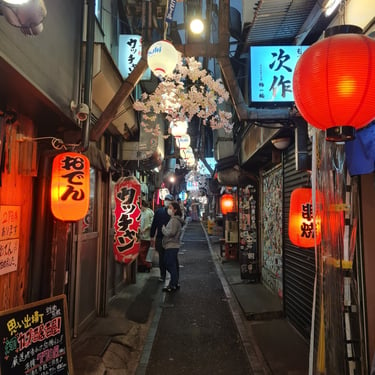
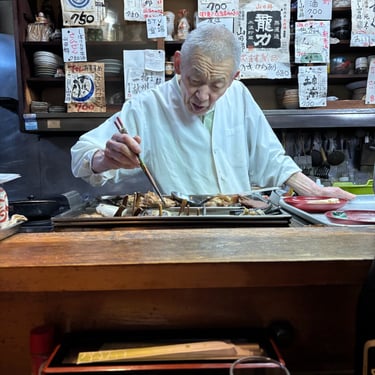
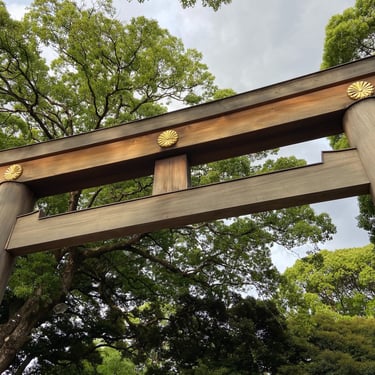
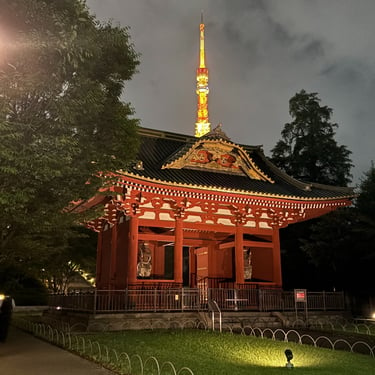
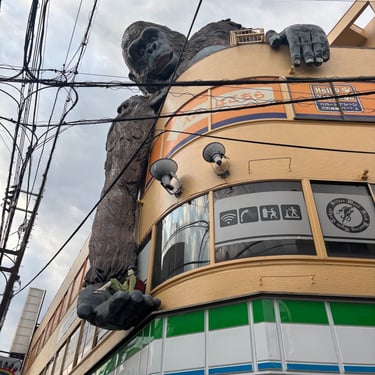
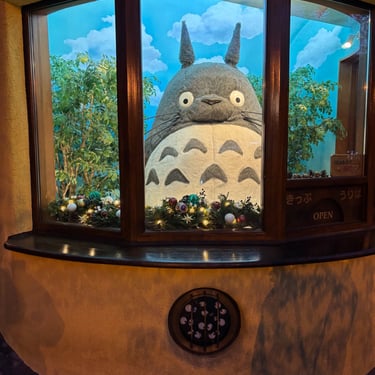
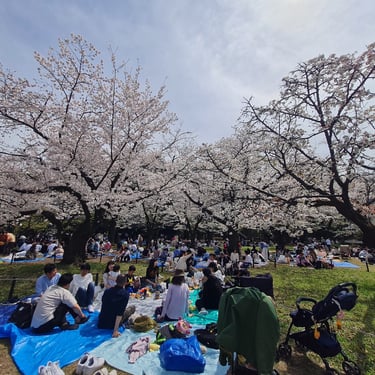
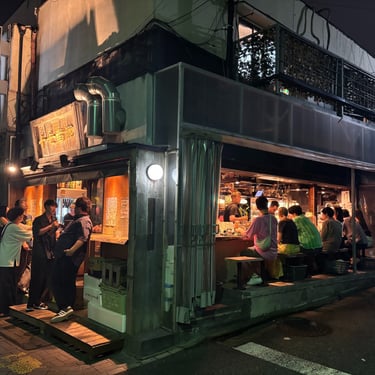
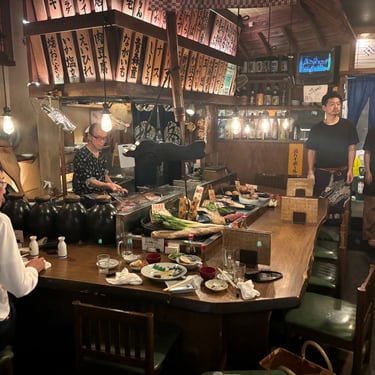
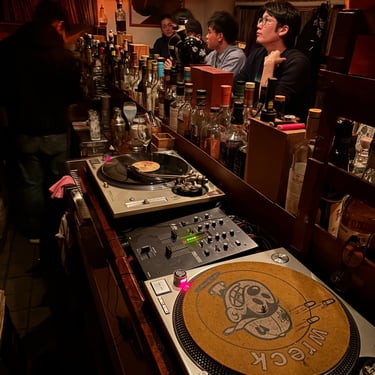
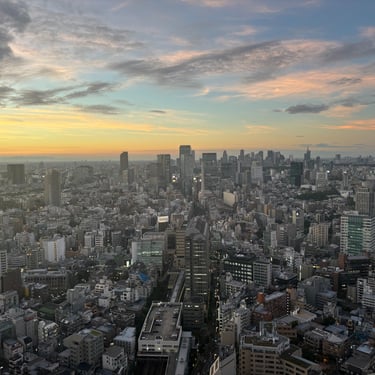
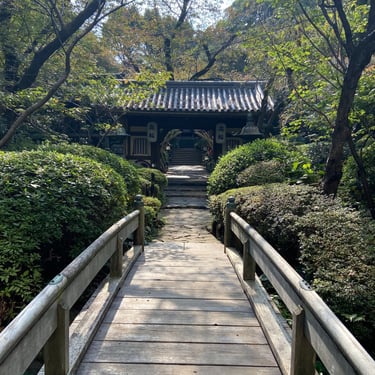
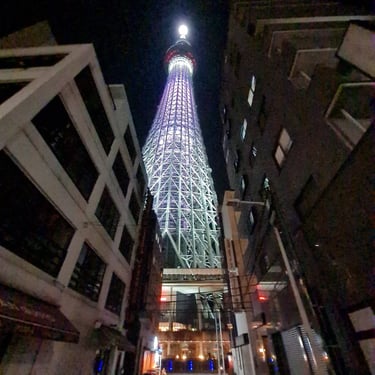
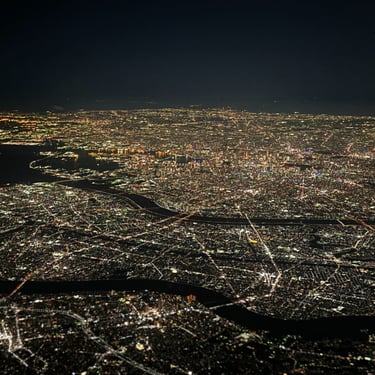
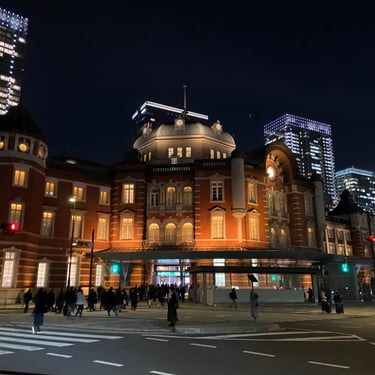
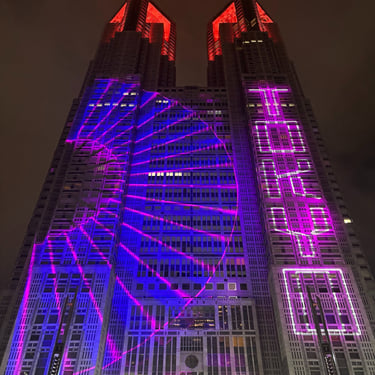
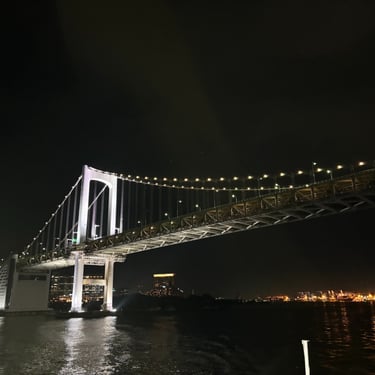
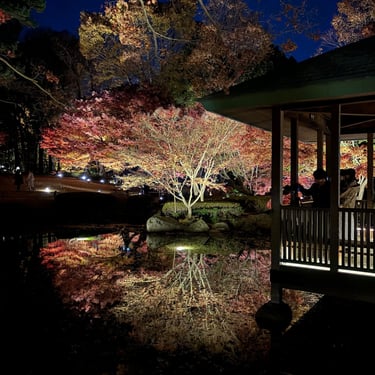
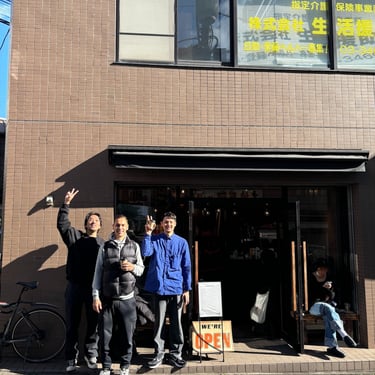
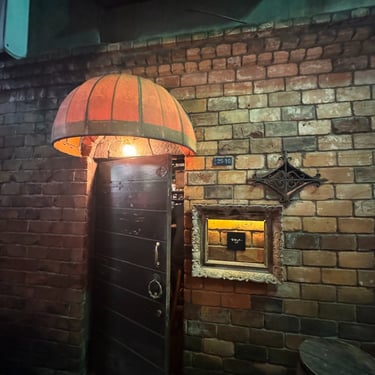
TRANSCRIPT
Welcome to EveryCity Whispers, a look into the invisible messages cities send us and how they shape what we value, chase, and who we become. I'm Steven. I've lived in five countries across five continents, and I've come to believe that every city whispers something to its people. Not out loud, but through pace, pressure, pride, even silence. This isn't a travel podcast. It's a lens on ambition, identity, and culture, through the quiet forces that shape us without us even noticing. What does the city want from you? And what happens if you say no? Today, Tokyo.
Tokyo pressures you in unspoken, self-enforcing ways. This is what I've come to learn calling it home for the past 5 years. But ultimately, it's your freedom to resist, persist, and let the world adapt to you. Master this, and you can have a wonderful life here. Lose sight of it, and the city can swallow you whole. Pressures in Tokyo aren't explicit, they're felt. There's a concept called kuuki-wo-yomu, or read the air. Communication here is very indirect. There's no rule book telling you to conform, but the moment you deviate, you feel the weight of the city–of 37 million people–subtly nudging you back into place. But here's the paradox: Master Tokyo's rhythm and you can thrive with it. Forget that you have the choice, and it will quietly erase you. So, do you let the city move you? Or do you decide your own pace? Tokyo doesn't take your autonomy. It just guides you firmly, but politely, to give it up. So that's the real question Tokyo asks: Just how much do you value your independence? And how much of your life is truly yours?
The theme of Tokyo is, I would say, intensity. Within Tokyo, you know, you get New York, Boston, San Francisco…like really different kinds of neighborhoods or regions. I mean, neighborhoods actually, in one city. So, it's really intense.
Diversity, not inclusive.
A city where dreams and change never stop.
It's always evolving into something new.
This is the first real episode of this podcast, so obviously I'm very much in an experimental phase. As I mentioned in the pilot, I'd like to eventually make this a lot more interactive and interview-based, but to get started, I'll share some personal reflections from my time living here.
A formative experience for me here in Tokyo was a few years back, I was sprinting through Shinjuku Station, which is easily one of the most chaotic places on Earth. Three million people a day. The station itself has over 200 exits. But somehow nobody bumps into each other. It's like an invisible algorithm keeps everything moving, like human self-driving cars. But, I got mixed up and I missed the last train. So I decided to stay in a capsule hotel. I could have taken a taxi. Hell, I could have walked. But I kind of wanted the experience. I was still relatively new here and exploring.
So, I check in, I crawl inside my capsule–which is basically a glorified drawer in this room full of them–perfectly slotted into my little compartment like a human USB stick. I fell right asleep, except around 3:30, I woke up to the sound of a man below me quietly sobbing. Not loud, just like, controlled, like he didn't want to disturb anyone. I rolled over inside my capsule, staring at the curved white ceiling inches from my face. The sound is faint, it's barely there. At first, I think I'm even imagining it. But then I hear it again. Just these short, controlled sobs, like someone trying not to let it happen. He's not wailing. He's not gasping. Just kind of like…unraveling, in the quietest way possible. I don't move. I don't know what to do. Tokyo teaches you to give people space, to pretend you don't notice. So I just lay there, listening. And then just like that, it stopped.
An hour or so later, I woke up again and I went to the bathroom, which is like a shared communal space. I noticed the capsule below mine was empty. And in the restroom, I see a guy with sort of reddish eyes splashing water on his face. It's like he's trying to remove evidence. He looked like he had been holding something inside for years. I noticed he had a really small tattoo of a lightning bolt inside his left wrist. And tattoos are not common here at all, so it was kind of notable. We lock eyes for a second–the kind of glance you share with a stranger. Not long enough to make it weird, just enough to register. But something lingers. Then he looks away and walks back to his capsule. I didn't say anything, ‘cause I knew he doesn't want to be seen.
And that's Tokyo. You can be surrounded by a million people, literally capsule to capsule–close enough to hear a quiet sob–and be completely alone. You can fall apart in public and nobody will stop you. Not because they're cold or inhuman or because they don't care, but because nobody wants to intrude. This is a city of respect, but also of distance.
So I was born in another area outside Tokyo, but I feel like there's a much more freedom of choices in Tokyo when I compare with other area.
A place where a lot of people gather.
There are many energetic and positive people in Tokyo and there are endless possibilities in Tokyo.
Lots of innovation and energy.
What I think about Tokyo is a place where a lot of diverse people come, or like tourism or even for work or job, or like opportunities.
There are lots of people. You can see many trains there. I like Tokyo.
I live near a place called Shimo Kitazawa. A few years ago, there was an article in a magazine that said it was one of the top two or three coolest neighborhoods on the planet. So, it has a bit of a cool reputation. It's been remade lately, but basically, it's fairly central Tokyo, not too far from Shinjuku or Shibuya, which are obviously more famous. But known for a lot of musical establishments, restaurants, bars, a lot of students, things like that. It's a fun vibe. My favorite bar in the world actually is here. It's a place called Little Soul Cafe, where there's a cool owner named Mia who runs the shop by himself. And if you go in the bathroom there, there's actually an autographed poster of Nas, who's one of one of my hiphop heroes growing up. Like Nas, one of the greatest rappers of all time. And I asked Miya, I was like, "What the hell? This is a Nas poster, signed?" And he was like, "Yeah, every time he's in Tokyo, he comes here." I was like, damn, that’s pretty cool, ‘cause it's not where you'd expect some international celebrity to…you you have to know about it and you have to seek your way there. It's not like you just trip upon it in Shibuya or something.
Anyway, when I first moved here, it was just when Corona virus was early stage, so there wasn't a whole lot going on late at night for my first two years here. But in Shimokita, there's a ton of what they call live houses. These are music establishments. Last year, I decided to finally check one out ‘cause things started to become normal again. You walk down some stairs into a basement and the energy is just electric. There's guitars buzzing, sweat dripping off the walls. There's a punk band that's just like killing a set. (Music) I have no idea who these people are, but the lead singer is wild, just like, raw energy. His hair is spiked up, he's wearing this ripped long sleeve t-shirt and screaming into the mic like his life depends on it. He's in the zone. I'm not a big punk guy, but I dig the energy. And there's something about this dude that I just, like, can't pin down. So about 20 minutes later, after the set, I'm chilling for a bit and then I head upstairs to go out, and basically run into the lead singer on the street. He's smoking a cigarette at the top of the stairs. And I've been learning Japanese all this time, and since I've been drinking, I tend to be a bit less inhibited with it. And so I try it out. And it turns out that he speaks a bit of English as well. And one thing I've noticed about Japanese people, it's funny. If you ask an American or generally Western people, well, I won't speak for others, but if you ask an American, “do you speak any other languages?” A lot of people will say, "Oh, I speak a little bit of French." And the funny thing is they might have learned like three French words in, like, ninth grade. They know how to say three things, but they'll say they speak a little bit. Japanese people, on the other hand, if they speak like 80% English, they'll still say, "No, I don't speak English." Because there's this humility about them that, unless they're 100% fluent, they don't feel that they can take credit for it. But in any case, I've noticed that with Japanese men, if they do speak English, especially if they're drinking, they kind of like to show it off a bit. So, have a good conversation with this guy, and it's cool. We actually exchange LINE at the end. It's like, you know, trading phone numbers. And the plan is that his band performs in Shimo Kitazawa every so often, so the next time he's around Shimokita for a show, maybe we'll grab a drink. So, I'm pretty excited. I go home, walk home, and like…that was a cool night. Made a new friend.
Tokyo for me is a very convenient place to live. People are polite, things move fast, chaotic, but feels pretty much like a second home now for me.
Controlled chaos, where its multifaceted and opposing mannerisms mixed together is chaotic, yet there is an underlying set of rules and principles, spoken or not, that keeps harmony.
Small in size but big in people. It's a small big world.
Tokyo is indifferent to other people, for me.
Fast forward six or seven weeks and, boom, I get a LINE from this dude asking me if I want to grab a beer and of course I say yes. He has a show in Shimokita and we're gonna catch up before. I go to the bar we're meeting and I hardly recognize him. He walks in wearing a suit, and I do a double take. It's not that he looks different, it's that he looks exactly the same as before, but like he's in disguise. He takes off his coat. He unbuttons his cuffs. And that's when I see it. A tiny lightning bolt inside his left wrist. For a second I just stare, and it must have been the weirdest “nice to see you again” in the history of meetings. The memory comes crashing back. The bathroom, the water running, the red eyes, the sobbing man, the punk rocker, the suit. It was him. It was always him. That's what I wasn't able to pin down when I saw him screaming on stage. Do I mention it? Do I ask? Does he know? I think about saying something. I think about asking, but in Tokyo, people don't ask. And nobody tells, nobody pries. So I just sit there, holding this secret. I couldn't bring myself to do it. But I did dig in and try to understand a bit about this guy. He told me about his work, that he's working at an import-export company in Marunouchi, which is the business district–well, one of the business districts–of Tokyo. I kept prodding a bit, and I could tell that he wasn't comfortable sharing much, but he did start to open up. And he told me that a couple months prior, he'd been assigned to a project where he was working like 14-hour days, and it forced him to miss a few of his band's gigs. And that really got to him. For this guy, music is his outlet. He probably won't ever make as much money playing as he spends on practicing, but he said that he actually approached his boss to change positions because he felt like he couldn't function without the balance. He needed these two lives to balance each other out. He said his colleagues had no idea about his music, and he said his audience has no idea that he's a suit by day. Again, nobody asks, nobody tells, but the balance just works. So, we finished our drink and this guy has a show to get to. And I hesitate. I almost let it go. But something in me just won't. And then I say it, almost against my will. I mentioned that I stayed in a capsule hotel a couple months ago, just for the experience. And I ask if he ever does that after a night out. He gives me a tiny, almost imperceptible, smirk. It's not a smile. It's not a laugh. Downs the last few drops of his highball, and doesn't answer. He doesn't need to. Tokyo is a city where nobody asks and nobody tells. But in that moment, we both understand. And then it's off to the show.
So, Tokyo is a city where old and new mixed.
Ordered chaos.
Tokyo city never sleeps.
The theme I associate Tokyo with is a melting pot. I feel Tokyo has a chaotic but balanced blend of so many things from so many different people coming from different backgrounds. People that were born and raised for generations in Tokyo, others that come from like super far away, maybe from even outside Japan. And you know, people say Tokyo is living in the future, but I like to think that that's because we still have people who for generations have been in Tokyo, preserving and projecting these traditional Tokyo cultures. The idea of this futuristic Tokyo becomes more vivid and very like prestige, right? And with this comes different types of people, cultural, food, schools of thought, religion, everything and anything. And to me, the word that best describes that is a melting pot.
So what does Tokyo whisper about life? To me, it's that you don't have to follow its rules, but if you're not paying attention, you already are. Tokyo doesn't demand conformity. It just assumes it. And most of us will quietly fold into it, never realizing that we had a choice. If you choose not to conform, it doesn't erase you. It just hands you the eraser, quietly, silently, without malice, and lets you decide what to do with it. Nobody forces you to disappear, but the invitation is always open, and the city will never stop to ask if you're okay.
I've chosen freedom here, but I have to admit, as a foreigner, it's easier for me. I live outside the algorithm. I don't carry the same generational weight, and that gives me room. I believe that with that distance, I've become something more than just another outsider, another observer. In a way, I'm a kind of mirror reflecting back the freedom that many Tokyoites are still searching for. Sometimes without words, sometimes without knowing they're doing it at all. A freedom many are still learning, slowly but surely, to claim for themselves.
One night, not long ago, I finished a few drinks with a friend, and we headed over to Family Mart before we went home. Family Mart's a convenience store here–konbini–and they have this brilliant junk food called Fami Chiki, like, freshly made, well, I'm not sure how fresh, but fried chicken. And they even sell separately the little bun for it that comes with sauce and everything. It's brilliant. It's like you can make your own Chick-fil-A sandwich 24/7. Uh, it's quite an experience. Highly recommend it after drinking. It was one of those nights that we just wanted to extend a bit. We're just standing outside laughing about nothing. And in walks this ragged man in a cheap suit, shiny at the knees, frayed at the elbows, carrying a briefcase. He shuffled over to the shelf, picked up an onigiri, a little rice ball, and held it for just a second too long. It's like he was weighing more than just the price. Maybe whether or not he deserved it, or if it was worth the effort. Then he put it back. No purchase, no rush, just a quiet decision to leave empty-handed. And just like that, he disappeared back into the city.
I still think about him, because that's the question, right? We all face those moments where you become the thing on the shelf, waiting to be chosen, wondering if you're worth it. And do you keep picking yourself up again or leave yourself on the shelf? That's the paradox of Tokyo. You can exist here fully within the system, following all the norms, and still feel completely lost. Or, you can carve your own path, quietly, deliberately, without asking for anyone's permission, and eventually the city will adjust around you. It's easy to let the waves carry us, but there's quiet power in setting our own rhythm, even if the current keeps pushing back. Not to rebel or escape, but to persist. To be seen on our own terms, even if nobody's looking.
There's a little izakaya I go to in my neighborhood, tucked away in a quiet back alley. The owner's there every single day, maybe takes a day off or two each month. And day after day, night after night, he has to turn people away. He's always full. He could have opened five more shops by now, but he hasn't. So one day I finally asked him why, and he just smiled and said that sometimes staying small is how you stay alive. He had simply opted out of Tokyo's endless hunger for more. And he's still here, still thriving, still whole.
Sometimes, maybe most times, freedom isn't loud and rebellion isn't dramatic. It's just standing still for a second in the middle of rush hour, taking the train a few stops too far to trip into a different neighborhood, opening up a beer outside the convenience store and staring up at the wires in the sky and realizing I'm here. I'm not asking. And I'm not going anywhere. And the same goes for any city, every city. Any system, any life. In that way, Tokyo is just a metaphor. For anyone who's ever felt invisible in a crowd. For anyone who's ever wondered if they're allowed to be different. For anyone standing there hungry, wondering if it's finally time to pick themselves up off the shelf.
I've lived here for 5 years, and the city has changed me. I care less about status, less about pretending to be busy, and more about creating a life that actually feels like mine. That's what led me to start EveryCity, because I believe every city has something to teach us, if we're quiet enough to hear the whisper, and brave enough to whisper back.
Tokyo is chaotic but there is a certain order in it. It's a very interesting place but if you have little money you can hardly enjoy the city life.
I've been living in Tokyo 55 years. I haven't lived anywhere else really, so it's hard for me to have a strong opinion. Do you like Tokyo? You can get tired here because of the crowdedness, and there's also expenses to worry about.
Tokyo is a place where people from all kinds of backgrounds come together.
My take of Tokyo is a representation of an organized chaos. And the Japanese people that make up the city are also both the good and the bad, all mushed up together, masked by a layer of discipline, if you know what I mean.
There are many tall buildings in Tokyo. Many fun things to do. It’s a place with many people.
It is a good city. I really like the supermarket, Ito Yokado.
There is a Christmas Tree in Kichijoji that I like.
I like Tokyo Tower!
***
If you’re here for the dramatic effect, that was the end of the main part. Curtains closed. Feel free to drop off. If you're here for a bit of fun, exploration, and randomness, then stick around. A few more segments I want to play with, but hopefully interesting. Okay. Playing around with a few different ideas I have for segments. We're going to look into some interesting facts. So, things that you wouldn't be likely to know without living here or at least having spent a lot of time here or maybe you don't even know living here, but just interesting things that I've read about, experienced, tripped across, you name it. And I think I can do that for all of the cities that we explore. And I'd like to do a bit of a comparison game where, if Tokyo were an athlete or an actress or a celebrity, I think that could be a lot of fun. And again, I'm just looking for feedback and seeing what resonates. In the future, if those…if you really enjoy them, we can ramp it up. If they're stupid, we can take them out, whatever. But like I said, let's have a good time with this.
Alright, let's get into it. First, Tokyo actually has an island where you can swim with wild dolphins. If you take a ferry from central Tokyo, it'll take you about 6 to 8 hours to reach Mikurajima, which is part of Tokyo's jurisdiction. There's a series of islands called the Izu Islands that are administratively part of Tokyo Prefecture. The largest of which is Oshima, but one of them is actually famous for wild dolphin encounters and volcanic cliffs. So, look at a map, check it out. Izu Islands and Mikurajima.
There are more Michelin starred restaurants in Tokyo than anywhere else on the planet, with more than 200, which beats out New York and Paris put together. Quite frankly, I could give a s*** about this. I'm not what you might call a foodie, because I love every food, but it's interesting. If you're into food, there's no better place.
Next is something interesting about soundscapes. There's several variations of crosswalk music that signify different meanings to help the visually impaired, such as whether the safe crossing is going east-west, or north-south. The same is true of train jingles. Each station has its own unique jingle when the train is coming or when the doors are closing. ‘
Department stores here are basically like entire towns. There's huge department stores–Seibu, Tokyu. They basically contain entire cities on different floors that have dentists, pet hotels, travel agencies, shrines, and even art museums. And Shinjuku station is a city in itself. I mentioned earlier in the episode that there's over 200 exits in this train station alone.
You can rent a family, a friend, or a co-worker. There's companies here like Family Romance that offer professional actors to play roles in your life. From wedding guests to absentee fathers. It's not funny, but it's kind of funny, but it's not funny. Sorry for laughing.
It is considered rude to open a taxi door yourself or close it. The driver controls it with a button, a courtesy innovation from the 1960s, so taxi doors here open and close automatically.
There are no zoning laws at all in Tokyo like a lot of Western cities have, which I think is great, which results in a lot of a bit of chaotic architectural freedom, but that makes it very quirky and cool in certain places, but actually makes for a better living in the sense that you don't have these weird laws that prohibit businesses from being in the same zone as residences and things like that. Like in America where–there’s a really interesting book on this called The Geography of Nowhere, how this came to be–but it makes it so a lot of Americans cannot just, like, walk down the street to get a gallon of milk. They have to drive.
Crows here are incredible. I actually didn't like crows when I moved here, but now I've come to admire their intelligence. There's an incredible video from the BBC with David Attenborough, you have to watch, OMG, just for his voice.
Crows have become highly skilled at making a living in these new urban environments. In this Japanese city, they have devised a way of eating a food that normally they can’t manage.
You can see examples of crows that have learned to drop nuts on pavement to crack them and, in which cases, some nuts don't just crack from dropping. So they've learned to drop them in crosswalks, where cars can run over them, they wait for the light to turn, and then when the light is red and the pedestrians cross, they go and pick up the nuts that previously were run over and cracked open. It's pretty incredible.
There's not a huge homeless problem in Tokyo, but there are people who basically pay rent to live in internet cafes. They're called saiba homuresu, like, cyber homeless. These net cafe refugees essentially live in 24-hour internet or manga cafes, which is often because of job insecurity or unaffordable housing, although we could talk about that all day. One of the incredible things about Tokyo is the range of affordable housing in all parts of the city. So that's, I think, one of the things that makes this, for my money, the best city in the world.
Tokyo's vending machine density is ridiculous. There's approximately one vending machine for every 23 people–in this metropolis of 37 million people–that sell everything from hot ramen to umbrellas to neck ties to fresh eggs. You can literally find anything in a vending machine.
And lastly, it's kind of hinted on in this episode, but the city really runs on silence. In trains and elevators, conversations are minimal. It's a cultural norm rooted in the idea of meiwaku, which is basically this concept of avoiding causing trouble to others. But it does catch me really off guard when I go back home to the US now, and people are just loudly carrying on on the train or on the bus. Doesn't happen here.
So, interesting facts about Tokyo. I find them interesting. I think hopefully a few of you will too.
***
Now, one more segment that I want to play around with. If Tokyo were a person. I tend to lean sports, but I don't want to do it in this case because my athlete comparison to Tokyo would be Shohei Ohtani. And that sounds too obvious, because he's Japanese, but there's a reason why. It's because, it's all about his discipline and humility, but the fact that he's built different. Like, Tokyo doesn't brag, it doesn’t flex, but it's incredible. It's a machine of mastery. And that's the same with Ohtani: he doesn't talk trash. He doesn't draw much attention to himself, but he's doing things that nobody has has ever done in the history of baseball. And he's doing them quietly. Obviously the results and the numbers draw attention, but you don't really see him draw attention to himself. Tokyo shows you with actions, not with words. And that's the same as Ohtani. It's all about data, discipline, design, which is exactly how he's become so successful –with sort of precise measurements of his sleep and recovery and pitching mechanics and all that. That's the same with Tokyo. It's like systems level thinking everywhere, from how the trains are organized. You'll notice in the subway stations that there's a diagram of all of the subsequent stations along that line, that show you exactly which car–like car number 1 2 3 4 5 6 7 8–to wait at to be nearest to the exit or the transfer point at the station you're going to. So all of this just reminds me in a way of how Ohtani has become such a dominant baseball player.
If Tokyo were a celebrity, she wouldn't walk into the room. She'd glide in, wrapped in translucent vinyl and plum blossoms, making no sense and perfect sense at the same time. She'd hum a lullaby made of train chimes and pachinko machines. You'd try to place her…pop star, oracle, alien? But she'd already be disappeared down a side street. Tokyo is Bjork. Unpredictable, untouchable…a city you don't just visit, you decode.
If Tokyo were an actress, she wouldn't play herself. She'd vanish into roles–priest, assassin, android, empress–all in the span of a single subway ride. She doesn't beg for attention. She just is. Sharp angles, soft silences, futuristic, but rooted in something ancient and unreadable. Tokyo is Tilda Swinton, not fitting into any genre, but emotion in control. The kind of city that doesn't raise its voice, because it already knows something that you don't.
***
That's almost a wrap for episode one of EveryCity Whispers. But before we close, a few quick things I want to cover.
First, thank you to the people who were generous enough with their time to provide me with audio clips and answer the question of what Tokyo means to them, or allow me to interview them. I will also list them all, first name only, in the show notes. Thank you again, very very much.
Secondly, as you can tell, I'm a music head. So, for all of the music I used, I did not get formal permission. Quite frankly, I don't know how–this is a low-budget operation around here–but I really wanted to make music part of the story. Everywhere in the world hears Western music, and I think it would be a great touch to, in whatever country or culture or city that we're exploring, we can give local music a bit of shine. It's especially true here where karaoke is such a big part of the entertainment culture. And so the songs I've chosen, I try to drop in a lot of little Easter eggs in there, or little teasers of a song. Those are the songs that I've noticed in five years here that people tend to get really excited when they come on at karaoke, for example. So everything I've chosen, I really like, I love, want to give it some shine. So, if that's your music, if you're affiliated with any of that music, please forgive me. Please allow it. I'm not making money off of this. Hell, I don't even have an audience. Hopefully, I will someday, and then we can work this out. But, I've tried to do my best to pay honor to your art. I've chosen music that I love, that I think adds to the story, which I hope paints Tokyo in a very, very, very good light. So, again, I didn't get permission, but if you're related, cut me some slack. I hope I've done the art proud. And I will have show notes with all of the songs that I've used, so you can, for you listeners, you can check those out.
And lastly, I know I keep repeating myself, but I'm chasing my curiosity with this one, and I really want to bring you guys along. So, I consider everything up to now an experiment, and I really would welcome your feedback on what parts I should ramp up, what parts I can peel back, or what might be other interesting things to look into or to cover. I hardly see this as a comprehensive story of Tokyo. Of course, there's many facets to the city, many facets to the culture. So, I'm sure we'll be back. This podcast concept is supposed to be a deep dive, so I'm sure one episode won't cover a city that I know in depth as I know Tokyo, or that just is as deep as Tokyo, with as many layers. But to get started, I'll do a bit of a whirlwind, to some of the other places I've lived to sort of set the tone, but I'm sure we'll be back to Tokyo again and we can explore it from a different angle.
Alright, that's it for episode one of EveryCity Whispers. Thank you, thank you, thank you for listening and please come back again next time, where we'll look into New York. My name is Steven, thank you again, and I'll see you next time.
EVERYCITY WHISPERS
EVERY CITY WHISPERS SOMETHING...
CONNECT
© 2025. All rights reserved.
